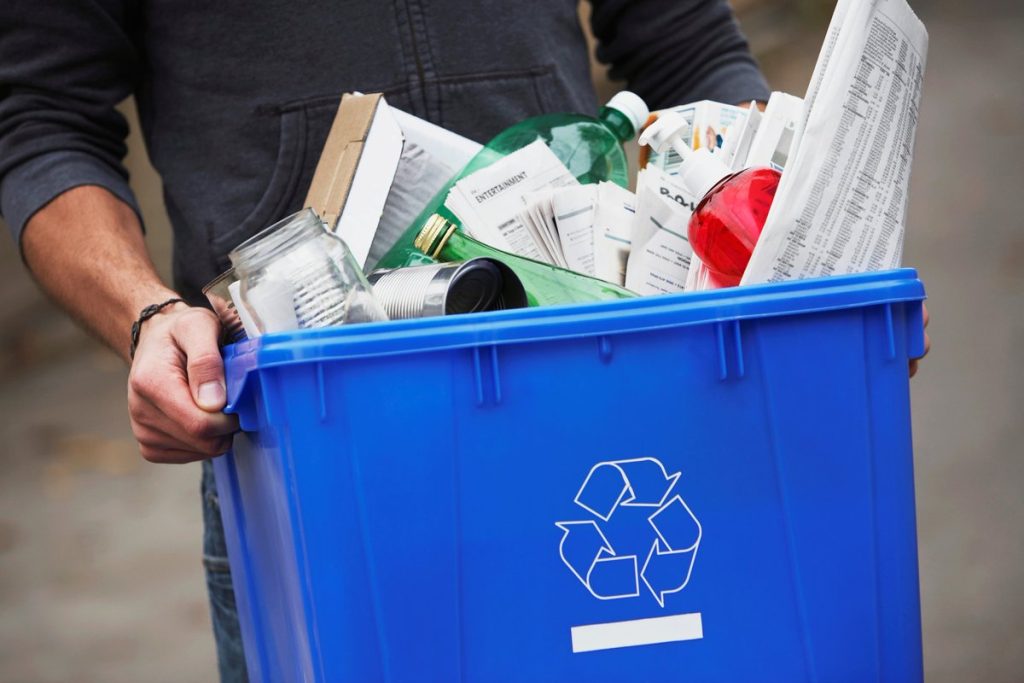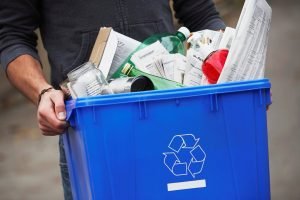
Household Waste Management: The Complete Guide
A clean and well-kept home is every homeowner’s dream, but keeping up with the amount of waste that comes from the average household can seem overwhelming. Household waste management is a huge problem. It is the most common form of waste worldwide, which we should all be aware of. We need to understand how it affects our environment and what we can do about it. The need for a sustainable way to manage our waste is becoming increasingly important with the increasing population. Where do you take your rubbish? How can you recycle more efficiently? How do you dispose of household waste safely?

If you’re looking to tackle these questions head-on, our guide to household waste management will give you some great advice for handling your waste. Waste removal in Birmingham or any other region can be challenging, whether at home or office. But that doesn’t mean we can’t start with some essential tips about keeping the stuff from accumulating in the first place! We’ll take you through what steps you need to take to ensure your waste management is as efficient and eco-friendly as possible, from sorting out all the different types of waste to recycling strategies and more!
Junk Busters offer affordable waste removal in Birmingham. With our prompt, reliable, and professional service. We take care of all your unwanted rubbish, removing it from your property and disposing of it legally.
How to Reduce Your Waste
Reducing your waste is an essential part of reducing your carbon footprint. Begin by identifying what kind of waste you produce. Once you’ve gotten a handle on your household waste, start brainstorming ways to reduce it. For example, if you throw away plastic bags regularly, invest in reusable shopping bags instead. After all, there are plenty of ways for households to reduce their waste output—you need to be creative about how you do it! Here are some tips and tricks to get you started. Buy in bulk when possible; less packaging means less waste later on. Also, if you don’t buy in bulk, you should ensure that your purchased household goods have minimum packaging. Say no to plastic and non-biodegradable packaging. Choose environmentally friendly cleaning products that can be reused or recycled.
Many green alternatives are available at local stores, so look around before buying. Use cloth napkins instead of paper ones whenever possible; not only will they save trees, but they’ll also help reduce water pollution from paper manufacturing. One way is to purchase reusable items that will last a long time. This will ensure that you are not constantly buying new things and throwing away the old ones. Start reducing waste using reusable water bottles instead of plastic water bottles. This can save you from spending money on a new plastic water bottle whenever you want one. And it also reduces the amount of plastic that ends up in landfills, oceans, and waterways.
Recycling
Recycling is an excellent way to create less waste in your household, save money and help protect our planet. Recycling is important because it reduces the amount of pollution and waste worldwide. It also contributes to conserving natural resources such as water and trees. You can recycle at home in many different ways, including how you do it and what you choose to recycle. One of the best ways to start recycling is with your household waste. Get into good habits of separating rubbish such as glass bottles and cardboard from other rubbish when you take it out for collection. Then take advantage of local services to reduce what ends up going into landfills. It’s also important to remember not all items can be recycled, so find out if there’s anything specific around your area like electrical goods or batteries that need special treatment before they end up in your garbage bag.
Look for plastic bags, food packaging, and bubble wrap to ensure you don’t miss any items when sorting your rubbish. Also, look for aluminum cans marked with a triangle symbol. It is always better to put these goods in your recycling bin all of the time. You can contact your council to what kind of items they can pick for collection. You can also hire a waste removal in Birmingham or any other region to get your recycled items collected. Your recyclable waste will be transferred to a recycling center. Recyclables are processed at the processing facility to remove impurities such as glass and metal and turn them back into raw materials. These raw materials can be used to make new products such as paper.
Junk Busters are a professional, friendly team of waste removal experts. We offer fully-customised and cost-effective waste removal in Birmingham.
Where Should You Keep Things That You Recycle?
If you’re considering putting your items in a recycling bin, it’s essential to know where to keep them. Some things—from light bulbs to old paint cans—are better recycled in glass or plastic containers. Check your city’s website for information on whether you should use a recyclable bin for glass, plastics, etc. If there isn’t one listed on your municipality’s site, place all recyclables in one container. Don’t forget to rinse off empty paint cans before throwing them in your recycling bin!
When storing these items, could you keep them in closed containers and dry? Outside storage is fine (and can reduce pests and odours) as long as they are kept in a closed container and out of direct sunlight. You might also consider using separate containers for paper products and food scraps. While most cities offer curbside recycling services, don’t forget that you can recycle at home too! You can use water bottles, bags, and other items at home.
Composting
Composting is the natural conversion of organic waste into a soil supplement. The process is done by decomposing the organic material through microbial activity. The composting process starts with collecting organic materials and then adding water and air to ensure that the microbes have enough oxygen to work. The next step is turning and mixing compost materials so that there will be contact between all parts of the compost pile. This helps with aeration and keeping the internal temperature of the pile stable. The last step is adding fertilisers to help feed microbes, earthworms, and other organisms.
There are two types of composting. In active composting, you turn and mix your materials regularly to accelerate decomposition, which usually happens in a matter of weeks. In passive composting, you let nature do the composting for you. It can take a year or more for your materials to break down. Either way, you end up with black gold known as hummus, rich in nutrients and perfect for planting. You can do composting at home or toss your compostable waste into a compost bin. You should always follow instructions from your council on what type of waste you should put in your compost bin.
Junk Busters offer affordable waste removal in Birmingham. We remove rubbish and unwanted items from your home or business at reasonable prices.
Conclusion
When it comes to managing your household waste, there’s no one-size-fits-all solution. Whether you hire a company or do it yourself, developing a plan that works for your household waste is key to reducing both your carbon footprint and cost. Although everyone has different options for waste disposal, these tips should help you find an environmentally friendly solution. Any changes you make will only be as effective as their implementation.
Start with small steps first, such as recycling and composting when possible. As you become more comfortable with implementing change in your home, move on to more significant steps like purchasing green products and using renewable energy sources. If you can implement just a few of these strategies at once, you’ll see substantial results in how much waste you produce and how much money it costs!
Junk Busters offers affordable waste removal in Birmingham. Call today for a free quote on rubbish collection and recycling and get a competitive price on house clearance.
